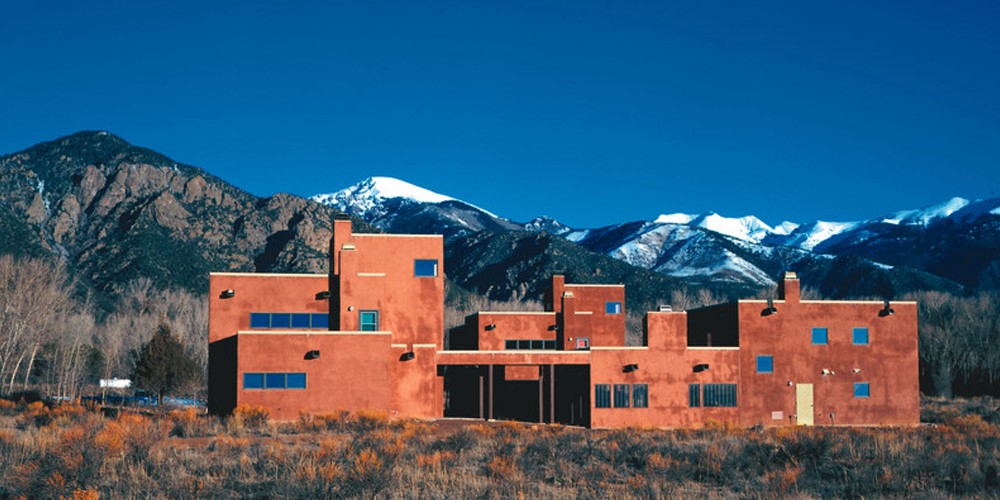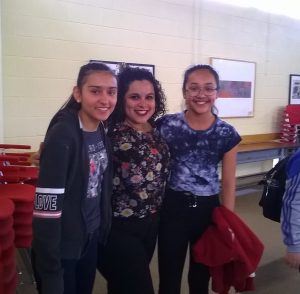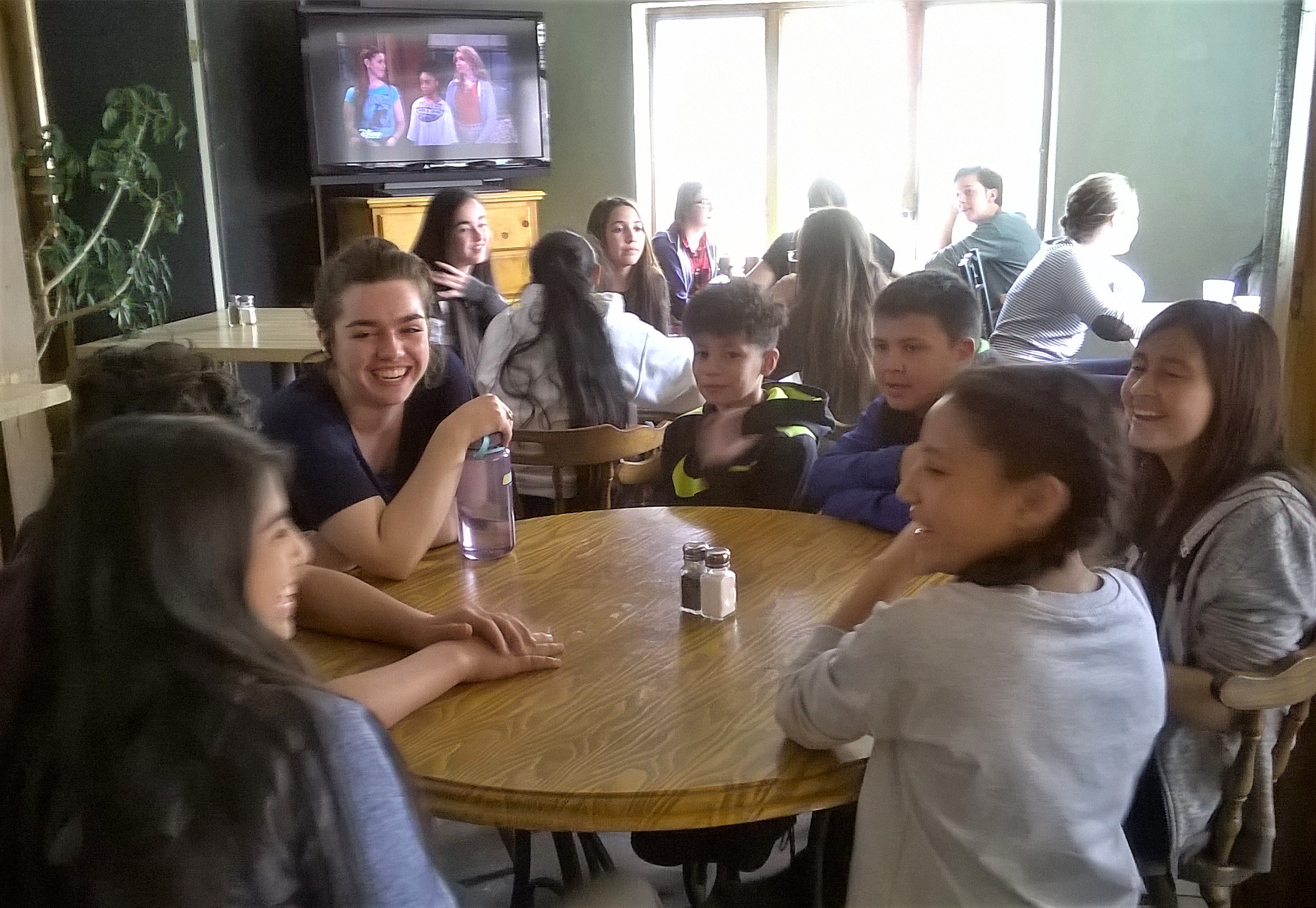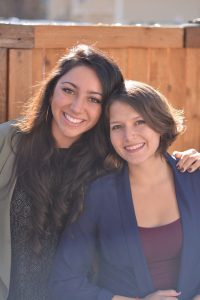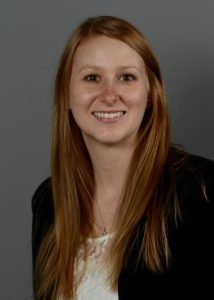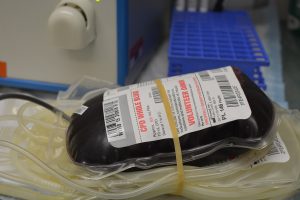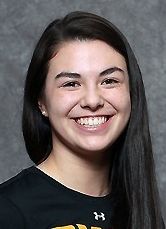 The office of Collaborative for Community Engagement is excited to announce that Jasmine Wallack, a graduating CC senior, will be joining the CCE as the paraprof for the academic year of 2018-2019. Jasmine has been a very involved member of both CC and Colorado Springs community, participating in the Community Engaged Scholars Program, leading the Roots club, playing lacrosse, and lot of more. The CCE staff has recently talked to Jasmine about her CC experience, emergent in Colorado Springs community, and hopes and goals for the future.
The office of Collaborative for Community Engagement is excited to announce that Jasmine Wallack, a graduating CC senior, will be joining the CCE as the paraprof for the academic year of 2018-2019. Jasmine has been a very involved member of both CC and Colorado Springs community, participating in the Community Engaged Scholars Program, leading the Roots club, playing lacrosse, and lot of more. The CCE staff has recently talked to Jasmine about her CC experience, emergent in Colorado Springs community, and hopes and goals for the future.
Julia (CCE worker): Hi Jasmine! Thank you so much for cooperating with us and sharing this invaluable information about yourself and your views in community engagement. To begin, please tell us what you are majoring in at CC, and how (if at all) is your major related to the work you will be doing at the CCE?
Jasmine: Hi Julia! I’m majoring in political science and minoring in nonviolence. I think my major is related to the work I’ll be doing at the CCE because understanding the structure of political systems is important for doing many kinds of community engagement—it helps you recognize potential avenues for effecting social change. Nonviolence is also related to the work I’ll be doing because I believe it’s all about actively trying to better the world on all different levels. I think both of these disciplines will inform the ways in which I try to engage with students and the community.
Julia: This makes so much sense, and I hope you will be able to use the knowledge you got from your major and minor to make as much of a difference in this world as possible. What events and programs outside of the classroom did you enjoy the most while being a CC student?
Jasmine: The program I’ve been most committed to outside of the classroom is being a member of the lacrosse team. It’s been a tremendous privilege to get to be a part of something so challenging and rewarding while being surrounded by some of the kindest and the most hard-working people I’ve ever met
Julia: Lacrosse sounds like a lot of fun, and I am happy you’ve enjoyed this experience so much. Besides lacrosse, what do you like to do in your free out of school time?
Jasmine: In my free time I like to go on long runs on the Tiger Trail and explore new restaurants in Colorado Springs.
Julia: I can certainly relate to you on exploring new restaurant in the area! What motivated you to join the Community Engaged Scholars program? What lessons did you learn from being in this program during your CC experience?
Jasmine: I wanted to join the Community Engaged Scholars program because being part of the program would connect me to other students who are also actively involved with community engagement. What I didn’t anticipate, was how valuable I would find the reflection process included in the program. Having to evaluate each experience has provoked me to be more critical about my community engagement and led to lots of helpful brainstorming.
Julia: Yes, a lot of students first underestimate the value of the reflection process on their community work. What activities do you organize as one of the leaders of Roots? What events has this student organization led during this year, and what were some of the most memorable ones?
Jasmine: I organize a variety of activities for Roots including weekly writing/art workshops at Urban Peak, publishing the Roots zine, bi-blockly campus meetings, and community art events and projects. We did an event called the “Chalk Challenge” earlier this year at Acacia Park that brought together students, members of the homeless community, and other community members for breakfast, chalk art, and conversations. It was really fun to have so many very different people interacting and working together. Next week we have an event coming up that is the culmination of many initiatives called “Faces of Colorado Springs”. It’s modeled after the Humans of New York Facebook page and will also feature the zine we’ve created, our new logo, and will have an interactive component!
Julia: I have heard about the “Faces of Colorado Springs” event. I hope everything goes as well as possible there! Tell me please, why did you decide to work as a civic leadership paraprofessional at the CCE for the next year? What do you hope to achieve in this job?
Jasmine: I wanted to apply for the civic leadership paraprofessional position because I am interested in nonprofit/social justice work and I think this position will teach me a lot about these areas. I have also built a lot of relationships with people and organizations in Colorado Springs that I want to continue to develop. I hope that in this position I will gain a lot of professional development skills and continue to do community engagement at a grassroots level as well.
Julia: How would you promote community-engaged student-led initiatives at CC during the next year?
Jasmine: I think community engagement should be thought of as a central part of one’s education—as much as coursework. For this reason, I think student-led initiatives are an amazing way for students to learn while simultaneously applying their own expert knowledge to build community.
Julia: How do you think the block plan affects students’ ability/desire to be engaged in the community?
Jasmine: I think the block plan can make it difficult for students to plan ahead or commit to long terms engagement. However, I also think the relative constancy of the block plan’s day-to-day schedule has some advantages for participating in community engagement.
Julia: Where do you see yourself in five years?
Jasmine: I hope to be working in the nonprofit world—perhaps still in Colorado Springs—in some capacity and continuing to be active on the issues I care about most!
Julia: These are really good goals. What advice would you give to students who are trying to be active on and off campus in terms of volunteering and other forms of community service?
Jasmine: I think the best way to get involved is to find something you care about and really commit to it in terms of time and energy. I say this because most students have pretty demanding schedules and it’s easy to see volunteering as a last priority. Once I became involved with Roots, I decided I wanted to make it a consistent priority and have found my involvement to be really rewarding.
Julia: Thank you so much for such thorough responses! I am very excited to see your passion and care for the community, and I hope you have a great summer and a year at the CCE! We are very excited to have you!

